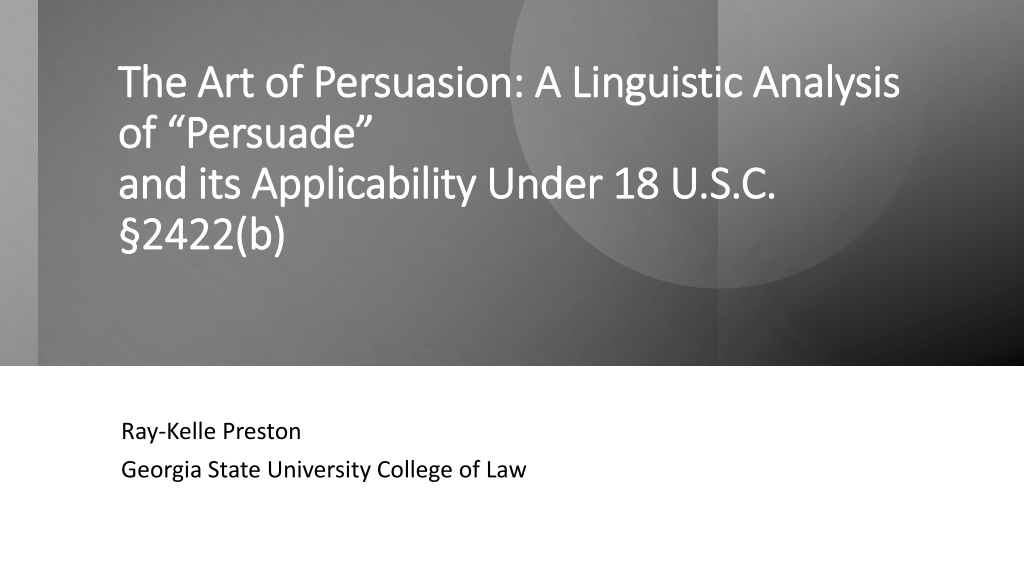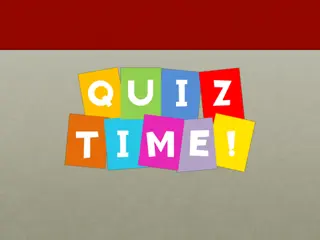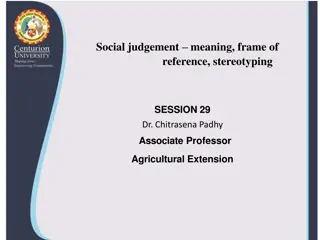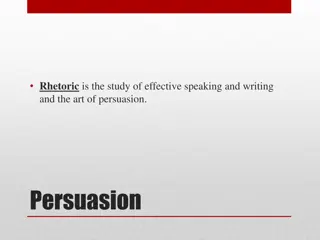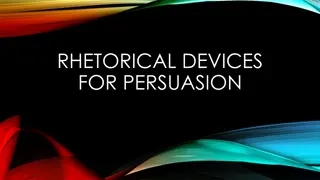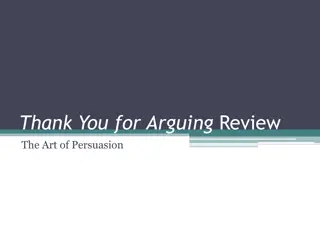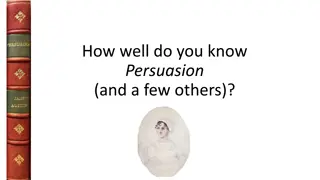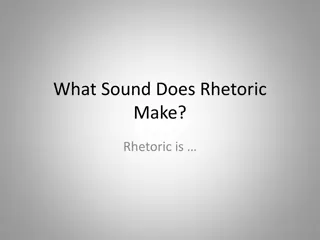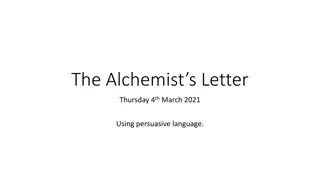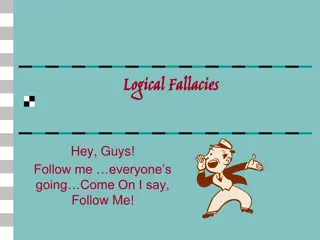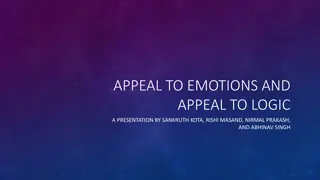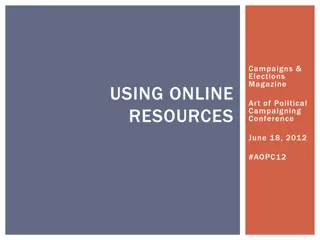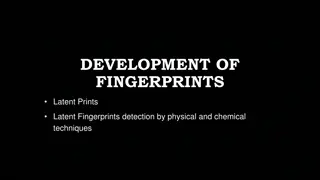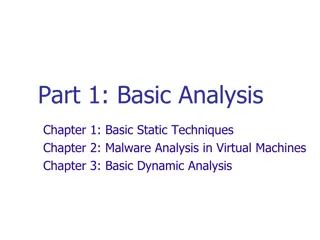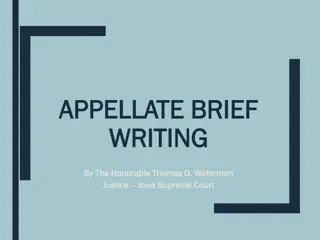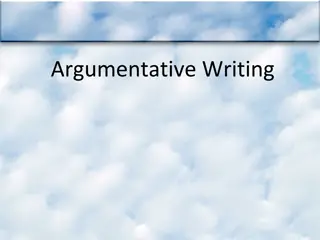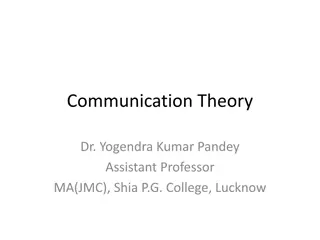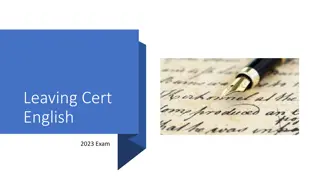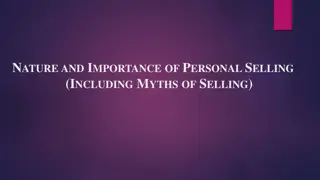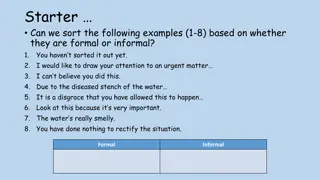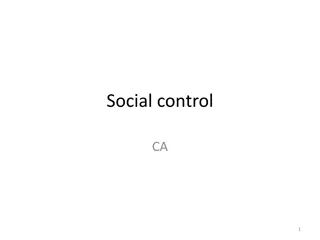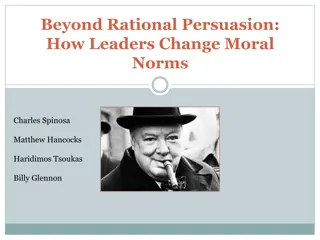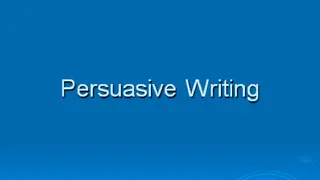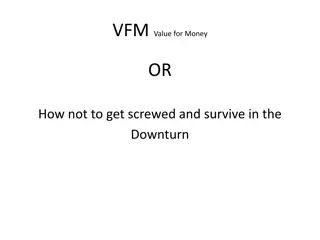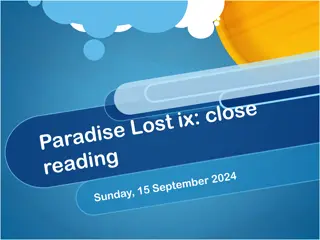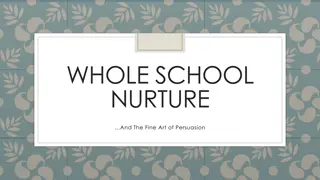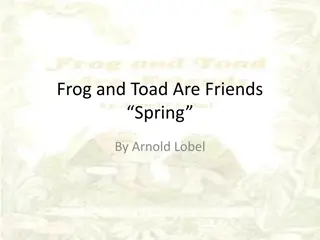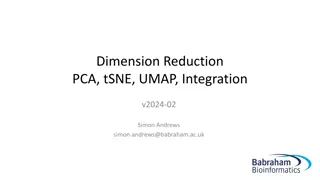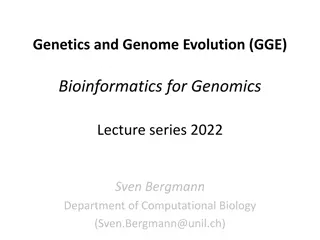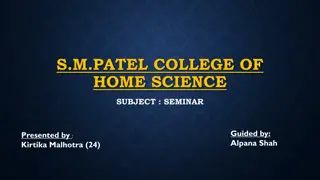Analysis of Persuasion Techniques Under 18 U.S.C. 2422(b)
This linguistic analysis delves into the art of persuasion as outlined in 18 U.S.C. 2422(b). The discussion covers cases like United States v. Zupnik and the applicability of laws regarding persuasion and coercion of individuals under 18 years old for illegal activities. Different circuit court interpretations are explored, highlighting the complexities of proving criminal intent and overcoming a minor's will in such cases.
Download Presentation

Please find below an Image/Link to download the presentation.
The content on the website is provided AS IS for your information and personal use only. It may not be sold, licensed, or shared on other websites without obtaining consent from the author. Download presentation by click this link. If you encounter any issues during the download, it is possible that the publisher has removed the file from their server.
E N D
Presentation Transcript
The Art of Persuasion: A Linguistic Analysis The Art of Persuasion: A Linguistic Analysis of Persuade of Persuade and its Applicability Under 18 U.S.C. and its Applicability Under 18 U.S.C. 2422(b) 2422(b) Ray-Kelle Preston Georgia State University College of Law
18 U.S.C. 2422(b) Whoever, using the mail or any facility or means of interstate or foreign commerce . . . knowingly persuades, induces, entices, or coerces any individual who has not attained the age of 18 years, to engage in prostitution or any sexual activity for which any person can be charged with a criminal offense, or attempts to do so, shall be fined under this title and imprisoned not less than 10 years or for life.
United States v. Zupnik (2021) Joel Zupnik was convicted of attempted enticement of a minor using the internet and sentenced to the mandatory 10 years. On appeal, he argued the government failed to prove he had the requisite criminal intent because the minor was willing. United States v. Hite (D.C. Cir. 2014): punishable only if the defendant s interaction with an adult intermediary is aimed at transforming or overcoming the minor s will in favor of engaging in illegal sexual activity
Hite is not applicable Zupnik believed he was communicating with a minor, not an adult intermediary Precedent: A defendant can be found to persuade or entice even a seemingly willing minor Zupnik relentlessly messaged Kelli after learning her age Eighth Circuit
Circuit Split Overcome the Will No Additional Action Fourth Circuit Causing or arranging sexual activity, alone, does not violate the statute Jury instructions required jury to find that Defendant made an effort to alter mental state Sixth Circuit Verbs refer to acts that seek to transform or overcome the will of the minor Did the defendant try to obtain the assent of the minor? Seventh Circuit Did not dispute that an effort to secure assent was necessary Second Circuit Statute imposes no requirement that an individual endeavor to transform or overcome will Eleventh Circuit: Upheld jury instructions allowing conviction if defendant caused the sexual act Rejected interpretation that communication must be aimed at transforming or overcoming the minor s will
A Better Way to Stop Online Predators: Encouraging A More Appealing Approach to S 2422(b), Andriy Pazuniak Encouragement standard: where the defendant encouraged or invited the minor to take action, to support the requirement of persuade, induce, entice, or coerce. Expansion of Entice: include speech that makes the illegal sexual activity more appealing to minors.
Corpus Linguistics Corpus of Historical American English 475 million words of text from 1820s to the 2010s Genres: Television, Movies, Plays, Magazines, Fiction, Non-Fiction
1. Random sample of 200 texts 2. Examined text for three roles Agent: one who causes the action Patient: one who receives the action Purpose: the endpoint of the action Narrow Results: From 200 texts, three random samples of 20 texts Analyzed relationship between will and persuasion 1. Identify initial will of the Patient 2. Distinguish the final resolution 3. Determine if purpose was realized 3. Analysis 4.
Row ID Context Agent Patient Purpose Initial Will Not indicated 1 14 more secret and more successful, and the plausible secretary had contrived so well to persuade the girl that he really thought the world of her, and that a brilliant secretary (Hon. Fitzroy Bagley) the girl (Kate Roberts - an American heiress) he thought the world of her Indicated: words were the gentlemen's own 2 105 refreshin' he wants when he gets' ome. No, you'll never persuade me as them words weren't the gentleman's own. From the way he intention of proceeding to his Manhattan home, although his sons and friends tried to persuade him to stay in his Hempstead home at least over night. Mr. Belmont declined face to the wall and hoped to die. And the minister went off to persuade Seth Curtis that his church needed his services. And that was not nearly as You (narrator) me (farmer) as them words weren't the gentleman's own Indicated: intended to proceed to his Manhattan home 3 153 his sons and friends him (Mr. Belmont) to stay in his Hempstead home at least overnight Not indicated 4 17 minister Seth Curtis his church needed his services Indicated: feelings were serious 5 82 They seem to me, in frankness, somewhat trifling. But I can not persuade her to accept my view. She will not be happy till she has asked I (The Cardinal) her (Peter's housekeeper) to accept my view (feelings of guilt are trifling) Initial State of Willingness
Initial Will Indication 12 11 11 10 10 10 9 9 8 Initial Willingness Results 6 4 2 0 Indicated Not Indicated Indicated Not Indicated Indicated Not Indicated
Final Resolution CONTEXT PURPOSE INITIAL WILL FINAL RESOLUTION SUCCESSFUL bah the President and Congress shall have our earnest co-operation, but we can not persuade ourselves, in the light of our own experience, that granting the rate- making power Granting rate making power to the Inter-State Commerce commission will realize the good that advocates of the meaure how Not indicated Not persuaded No 1 always think of you in those impossible garnishments of my poor great-uncle, and I persuade myself that he must have been a little like you. " I trust you he must have been a little like you Indicated: did not think great uncles was like Mr. Vanrevel was persuaded Yes 2 more secret and more successful, and the plausible secretary had contrived so well to persuade the girl that he really thought the world of her, and that a brilliant he thought the world of her Not indicated it was not long before he found her in a mood to refuse him nothing Yes 3 Rita curled herself thankfully in Captain Jack's hammock, after trying in vain to persuade him that he was an invalid, and ought to take it himself. After he was an invalid and ought to take it (hammock) himself Not indicated did not take hammock No 4 . " Wouldn't you? " " How could the man who owned it persuade me that he was in earnest if he said he loved me? How could he was in earnest (to rebuild a great house) Indicated: would not rebuild a great house Not applicable No 5
Was Persuasion Successful? 30 25 6 8 20 15 8 11 10 6 5 1 3 11 6 0 No Yes N/A Sample 1 Sample 2 Sample 3
Successful Unsuccessful N/A Analysis Results Initial Will 8 13 1 No Initial Will 16 7 2
The results indicate the existence of initial will does not have a significant impact on the act of persuasion. Even when the will was not indicated, the analysis of the full text was able to determine whether the purpose was realized and if the persuasion was successful. Zupnik Patient s (Kelli) initial will is not relevant to the act of persuasion. One could determine Zupnik was successful in his attempt to persuade, induce, entice, or coerce without any knowledge of Kelli s initial will. Conclusion
Future Directions 1990s to 2000s: When 2422(b) enacted Relationship between the Agent and the Patient All Four Verbs This method would examine the existence of initial will of the Patient with the relationship of the final resolution of the persuasion for each verb and compare if similar patterns exist. This process recognizes the flexibility of the human language and that words and their meanings can change over time. An employee and employer A parent and child
